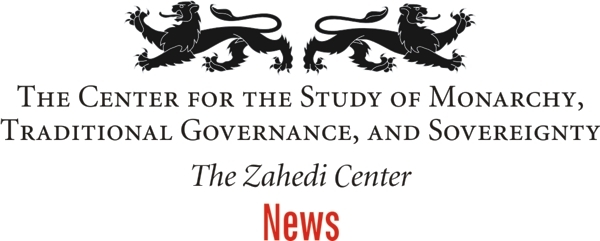|
The Chill of Exile: A Review of Imperial Exile November 4, 2016
Reviewed by Quinn Marschik, The Zahedi Center. Emperor Haile Selassie i of Ethiopia was a widely admired — although controversial — leader who had been the subject of many published works, including his own autobiography. Little had been known, however, of his exile in Bath, England. Keith Bowers, in his new book, Imperial Exile: Emperor Haile Selassie in Britain, 1936- 1940, attempted to rectify this by providing a focus, not merely on what the Emperor did during his exile in Bath, but on the Emperor’s state of mind and mental well-being throughout his exile in the city. Viewing exile through the eyes of the exiled, and understanding the toll which exile takes on the individual, are the primary themes of Bower’s book, with the specter of interactions between strong and weak states and imposing one state’s values on another looming in the background. While Bowers was able to provide a detailed, historical narrative for the Emperor’s time in Bath, and allow readers to view Emperor Haile Selassie as a fellow human-being, perhaps he could have addressed a theme that regularly stood out in his work: a monarch’s devotion to and representation of his or her people. This unaddressed theme was in play throughout Imperial Exile. Emperor Haile Selassie had left his country and into exile in Bath, not merely to avoid the humiliation of being captured, imprisoned, or killed by the Italians, but to ensure that Ethiopia would survive. So long as the Emperor remained out of Italian hands, a free and independent Ethiopia could live on, both in idea and in form. And it did. During his exile in the United Kingdom, the Emperor tirelessly lobbied the British Government to not recognize the Italian occupation of Ethiopia. He traveled to the League of Nations in Geneva to fight in the international arena for his nation’s independence. Though these efforts largely failed, Emperor Haile Selassie persevered, as did his people in Ethiopia. While the Emperor attempted to charitably aid other Ethiopian exiles abroad and determine how to return to, and free, Ethiopia, Ethiopians loyal to their monarch and country fought back against the Italians, and at enormous cost in human sacrifice. Author Bowers brings forth, as few observers have done, the great psychological impact which exile has on those disenfranchised from their homelands, both during their initial exile and in their later lives. The actions of nature of the Emperor when he returned to Ethiopia and through to the end of his reign are far more comprehensible in the light of the descriptions which are presented in this book. The Emperor emerges from this as a far more human, faceted individual, truly linked to family, his society, and his God than in any other historical account. He gave dignity and global stature to Ethiopia. Thus, in spite of the Emperor’s failures, and the strain of exile, events, and feelings which Bowers has made relatable to individuals at all levels of society, the Emperor, united with his people, never wavered in his pursuit of restoring Ethiopia’s independence, both as a state and as a civilization. In the end, the Emperor was able to return and resume his direct reign of Ethiopia. Despite the desire of some in Britain and France to divide his country, Emperor Haile Selassie was probably the only one who could have brought Ethiopia out from the darkness — and historically under-reported atrocities — it endured under Italy. He was able to keep his society stable, showing the ability of monarchs as iconic, unifying symbols to represent their peoples in full. Bowers’ unintentional highlight of the benefits of monarchy come at a time — almost three-quarters of a century after the events he described — when many nations face instability and partisan representation. His account of the Ethiopian Emperor’s devotion to his people and his ability to unite them provided an example of an option seldom taken by people in divided countries. Bowers makes us think that perhaps monarchical restorations — restorations in which the people could be represented without prejudice toward race, religion, or background, and with a leader devoted to them — remains a solution to such issues faced by many societies today. Including modern Ethiopia. |

